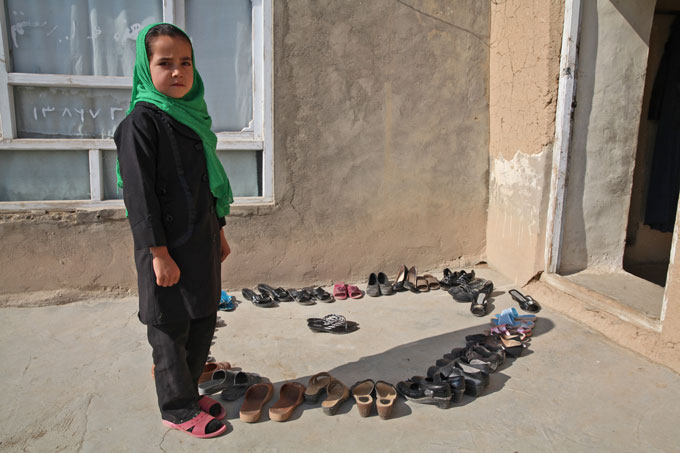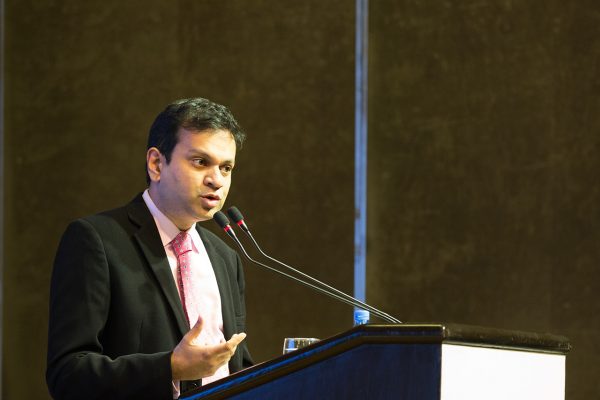Reading Time: 2 minutes
About two dozen shoes and sandals had been arranged in a neat circle outside the classroom of a community-based school run by BRAC in Afghanistan. This school in part 13 of Charikar town, Parwan district is not a formal one; it is part of a programme that takes the classroom to the community, allowing children – especially those still out of school – to easily access early education.
About two dozen shoes and sandals had been arranged in a neat circle outside the classroom of a community-based school run by BRAC in Afghanistan.
This school in part 13 of Charikar town, Parwan district is not a formal one; it is part of a programme that takes the classroom to the community, allowing children – especially those still out of school – to easily access early education.
We asked the children what they wanted to be when they grew up. While others wanted to be teachers, doctors or engineers, one little girl eagerly answered, “I want to be a policewoman.”
The classroom giggled at her response. The girl looked no older than eight or nine years old. But her teenage sister, who attended the same school, vouched that her sister was 12.
If the elder sister was right, then the little girl, who wanted to be a policewoman, was born the same year the war against the Taliban ended, permitting inhabitants of Charikar to come back to their deserted villages.
I still remember my first visit to Charikar in 2002, soon after the war ended. A junction of four roads (thus the name Char-i-kar) hardly had any activity. Only a handful of shops had sprung up in the few months following the overthrow of the Taliban regime.
There were no schools or health clinics then. Proper medical assistance was only available in Kabul, 70 kilometres south of Charikar.
But 11 years later, located on the busiest northern highway of Afghanistan, Charikar is now thriving. Government-run middle and high schools are full of both boys and girls.
But the most significant change has happened within the communities where closer classrooms have started encouraging locals to send their children for early education.
These schools are acting as feeders to government-run middle and high schools. In some locations, NGOs like BRAC have built classrooms, some of which are located inside a residential house in the community that children can walk to.
We will not know for several years whether the little girl does become a policewoman, but at least she has a dream, something that was denied to all girls during the Taliban rule. These schools are undeniably agents of change and offer a glimmer of hope to the communities that have been in a flux for the past 30 years.
Nazes Afroz worked for BBC Afghanistan as senior manager and senior editor, and now works independently.






